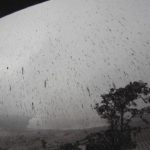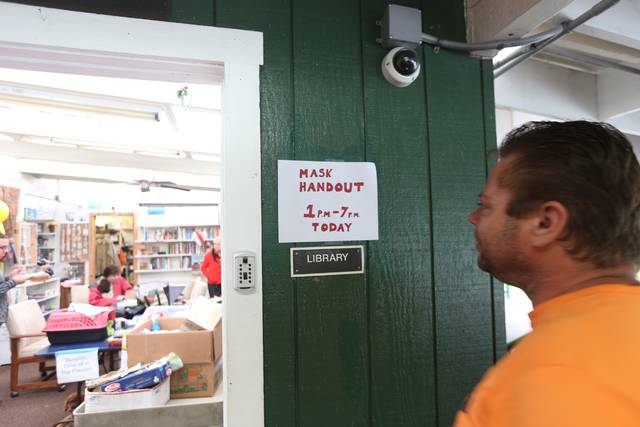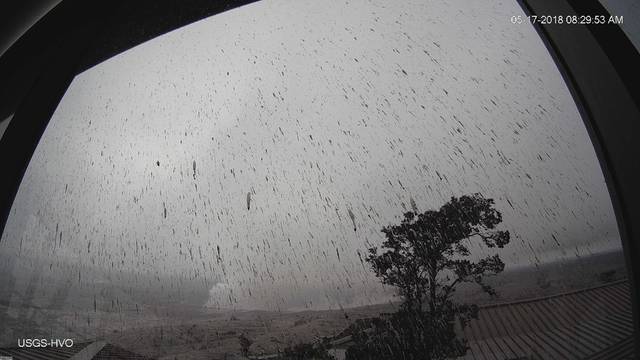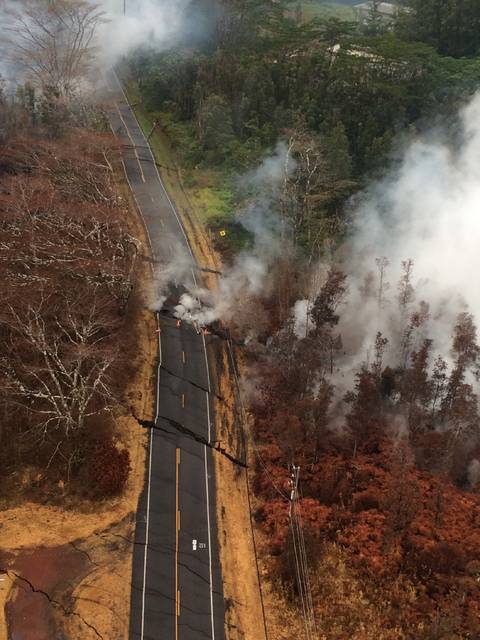The National Weather Service withdrew its ash advisory following an explosive event at Kilauea’s summit Thursday morning.
The explosion at 4:17 a.m. from Halema‘uma‘u crater was short lived and generated trace amounts of ash around Volcano.
Michelle Coombs, a U.S. Geological Survey geologist, described it as a “a big event that got people’s attention but not with widespread impact.”
An ash cloud rose up to 30,000 feet above sea level. Additional ash emissions are expected as the summit area remains unsettled.
“We may have additional, larger events, more powerful events, kind of like what we saw earlier this morning. … We could expect similar events as these kinds of interactions with the lava and the ground water continue,” Coombs said.
Meanwhile, gas emissions remain high around Pahoa and other parts of lower Puna as the East Rift Zone eruption continues. In Pahoa, schools and the post office have been closed due to elevated levels of sulfur dioxide.
Fenix Grange of the state Department of Health said 10 new air quality monitors have been installed “circling the rift areas.”
Grange said that briefly, at about 6:45 a.m., there was a reading of “condition red” at a monitor at Pahoa Fire Station. Condition red means there is at least 1 part per million of sulfur dioxide in the air and that severe conditions may exist, such as choking and inability to breath. The reading at the Pahoa Fire Station was reportedly 2.7 parts per million.
Grange said the best thing to do when in an area where sulfur dioxide levels are at condition red is to “get out of Dodge.”
Civil Defense also advises seeking medical attention if severely affected.
Geologists say ground deformation continues in lower Puna along the rift zone, indicating that magma continues to buildup underground.
Fissure No. 17 northeast of Lanipuna Gardens was active but with less lava being added to the flow, said Steve Brantley, deputy scientist-in-charge at Hawaii Volcano Observatory.
Hawaii Electric Light Co. said this morning that a portion of Leilani Estates and all of Lanipuna Gardens has been designated as a no-entry zone for its crews. Crews were working in the subdivision in the last few days and have narrowly escaped situations that could have resulted in severe injury, the power utility said.
Civil Defense advises residents to protect themselves from ash fallout as more emissions are expected. Those indoors are advised to stay indoors, close their doors, turn on the radio, and listen for updates from authorities.
Coombs described the events at Halema‘uma‘u as “a real dynamic situation.”
“We could have additional events like this morning that punch up then die down really quickly, we could have more sustained ash coming out of Halema‘uma‘u,” she said. “The one this morning is definitely the biggest we’ve seen so far, just in terms of energy and how high up into the atmosphere it got.”
Ash fallout may cause poor driving conditions due to limited visibility and slippery driving conditions. Motorists are advised to drive with extreme caution or pull over and park.
Ash masks will be distributed today in Pahala, Volcano, Na‘alehu and Kea‘au, the county said in a news release.
Free N95 masks will be distributed as from 1 p.m. to 7 p.m. at Cooper Center in Volcano, Pahala Community Center, Na‘alehu Community Center and at the Shipman Park Pavilion in Kea‘au.
N95 masks do not protect against gases and vapors, the county said.
After the hazard has passed, residents are advised to check their home and catchment system for any impact on water quality.











